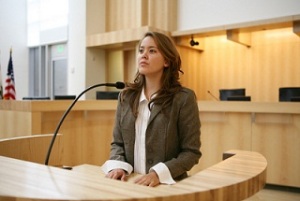I filed a billion dollar lawsuit today on behalf of a car accident victim. The lawsuit arose out of a rear end auto accident where the Plaintiff suffered soft tissue injuries to her neck and back that did not resolve until eight weeks later.
Frivolous Malpractice Lawsuits
Henry Thoreau wrote: “There are a thousand hacking at the branches of evil to one who is striking at the root.” So it goes with efforts to decrease health care costs by attacking the frivolous malpractice lawsuit straw man.
Attacking frivolous malpractice lawsuits is a brilliant way to frame the argument. If you poll the American people, they are universally opposed to frivolous malpractice lawsuits. So am I.
The other avenue is to attack trial lawyers and, in particular, medical malpractice lawyers. The effort to do this is obvious and pathetic.
Thanks for Admitting It Is All About Money
Dr. Stuart Weinstein, a doctor with outstanding credentials as a physician and otherwise cool sounding guy, said this in his prepared statement on behalf of a “Doctors Want to Make More Money” group to the House subcommittee looking at malpractice:
In 2009, the Institute for Legal Reform released a report showing that television ads for medical liability lawsuits increased by 1,400 percent in four years as spending on these ads reached an all-time high of $62 million — up from just $3.8 million in 2004
Really? You are speaking to Congress. This is a big deal, and making every word count. Yet you take the time to pass this along to Congress? How much money is spent on legal advertising is important to this conversation? A question of at least equal importance is: how much has Dr. Weinstein made over the last 5 years? I’ll bet you the answer is in the millions. Continue reading
Maryland Citizens Against Lawsuit Abuse Editorial
Todd Lamb, executive director of Maryland Citizens Against Lawsuit Abuse, and Ellen Valentino write an editorial in the Maryland Daily Record on the apocalypse that would occur if Maryland joined 90% of states and adopted a comparative negligence standard. Essentially, the authors’ argument makes two points: (1) comparative negligence should not be adopted by anyone other than the Maryland legislature and (2) comparative negligence would cause great economic hardship for Maryland.
I understand the authors’ point that any change in the standard should come from the legislature. I think most of the Maryland Court of Appeals will agree with the authors on this. As Judge Bell pointed out in commissioning a study on contributory/comparative negligence, Maryland’s contributory negligence rule is a common-law rule. Arguably, the legislature’s failure to act is not an approbation of contributory negligence. Can the court never change a rule because the legislature has not changed it for them? But I’m getting too far afield… I can see arguments on both sides of this issue.
That Maryland’s economy will suffer from comparative negligence is just plain silly. Maryland, Virginia, Washington, D.C., Alabama, and North Carolina are the only jurisdictions in the country that have retained contributory negligence. Has any serious economist – which I define for these purposes as someone who has taken an introductory economics course – suggested that these economies are meaningfully stronger and have lower inflation because of contributory negligence? Please.
Putting the Conversation with the Defense Lawyer in Writing
It seems like Lawyer 101 advice: if you are making an agreement with the opposing lawyer, get it in writing.
Few lawyers do it. There are two reasons for this. The first is laziness. If this is your problem, this blog post will not help.
But I think another reason people sometimes do not send letters memorializing agreements is that they feel like it is almost a breach of the trust between counsel. We all know some defense lawyers who would shoot their own mother in the head for the slightest of advantages. It is easy to send a confirmation letter to that lawyer. (You should not even be talking to that guy on the phone.) But what about when you like and trust the other guy? You feel a little like a jerk sending out an “I’m writing to summarize our agreement today” letter, don’t you?
Insurance Bad Faith Average Verdicts
A punitive damage award for an insurance company’s bad faith? It is a foreign concept for Maryland lawyers. But not for much of the rest of the country. A recent Jury Verdict Research study found that over the last twelve years, 32% of bad faith verdicts throughout the country led to a punitive damage award. The average bad faith punitive damage award was $6,951,219; the median award was $1,000,000.
That Maryland does not allow for punitive damages in bad faith claims is like my poor vertical jumping ability. I’m not that mad about it because it is all that I have ever known. I could never jump high (I could never even dunk a tennis ball) and I’ve never practiced where there was a potential for any real punitive damages in the cases we handle. But I definitely get “punitive damage envy” reading a study like this. Because it is a magnificent tool in keeping insurance companies honest.
New Expert Designations Opinion
Last week, the Maryland Court of Special Appeals decided Logan v. LSP Marketing, a lead paint case in Baltimore City.
Facts of Logan v. LSP Marketing
This case involves a lead paint poisoning lawsuit filed by Jamal Logan against 22 defendants, including LSP Marketing Corporation and Basilio Lachica. LSP filed a motion for sanctions seeking dismissal of the case or exclusion of all but one of Logan’s experts from testifying at trial. The court granted the motion for sanctions by excluding all but one of Logan’s experts, but denied the request for dismissal. Logan filed a motion to revise the court’s order, which was denied without a hearing. The case proceeded to trial, but Logan was unable to establish a prima facie case under the parameters of the court’s order. Logan requested a postponement of trial, which was denied, and one of the defendants moved for summary judgment. The court granted summary judgment as to all claims asserted against all defendants by Jamal Logan, and this appeal followed.
You Have to Answer Discovery
Here, Plaintiff did not answer discovery. Defense lawyers, who I believe were the Leder Law Group in D.C., filed a motion to compel. In what is regrettably a common practice in Maryland, the motion to compel got Plaintiff to answer the discovery and their response was “hey, this is moot, we answered now.”  Defendant’s counsel, to their credit, wrote a reply saying the answers were insufficient in part because Plaintiff wrote garden-variety broad designations of experts. The motion was granted, but a more detailed expert designation never came.
Defendant’s counsel, to their credit, wrote a reply saying the answers were insufficient in part because Plaintiff wrote garden-variety broad designations of experts. The motion was granted, but a more detailed expert designation never came.
So before trial, Defendant sought to strike the experts. Baltimore City Judge Kaye A. Allison struck Plaintiff’s experts from testifying at trial. When the case went to trial, Judge John P. Miller denied the motion to reconsider Judge Allison’s motion. Which left the Plaintiff with no case and Judge Miller granted the Defendant’s motion for summary judgment. Continue reading
Darvocet Lawsuit Predictions
The Maryland Daily Record has an article today by Lawyers USA writer Sylvia Hsieh on the expected wave of lawsuits involving Darvocet and Darvon. The gist of the article is that this is the next big thing: “Plaintiffs’ personal injury attorneys are gearing up to start an onslaught of litigation against makers of the popular painkillers Darvon and Darvocet.”
There is no question there will be a lot of lawsuits with very good cases. We are looking at Darvocet/Darvon cases and have a webpage devoted to these claims. But I really do not think this is the next big mass tort. I think there will be a small number of good cases and a lot of cases that go nowhere.
Cross Examining Experts
Paul Luvera writes a blog post about cross-examining experts based on a presentation he heard in New Orleans from a Florida lawyer named Dorothy Clay Sims (now famous from the Casey Anthony trial).
The post is worth reading if you are a personal injury lawyer cross-examining an expert. I also like the whole idea of this post. First, it is a lawyer reporting on what he learned from another lawyer. This is what good lawyers and good professionals do: use ideas and techniques learned from other people.
The other neat thing about this post is that it is Paul Luvera writing the post, sharing perspectives from another lawyer. Luvera has had more than his fair share of million-dollar verdicts. A lot of lawyers with track records that pale compared to Luvera take their ball and go home when it comes to opening their minds to learning from other lawyers (or witnesses, focus groups, juries or anyone else). The whole thing is circular: lawyers that will keep their minds open to learning from other lawyers are far more likely to get successful outcomes for their clients.
Ignition Interlock in Maryland
In March, I wrote a post about failed efforts in Maryland to require DWI offenders to install an ignition interlock system in their vehicles. Specifically, the bill before the legislature this year would have required people convicted of alcohol-related offenses to only drive cars equipped with an ignition interlock system for some period. Simple premise: cars can’t start if you are not sober. My first thought is who would be opposed to this. It just makes too much sense.
Reading the Maryland State Bar Association Legislative Preview today, I found out something interesting I didn’t know: this bill passed the Maryland Senate 44-0 before getting stalled in the house judiciary committee. Okay, so no one person in the Maryland Senate thinks it is a terrible idea, but we can’t even get it to a vote in the House of Delegates?
I think the people of Maryland would be very depressed to see how the sausage is made.
McDonald’s Happy Meal Lawsuit
A lawsuit has been filed by the Center for Science in the Public Interest – fancy name – against McDonald’s in the liberal bastion of San Francisco. The lawsuit alleges that McDonald’s practice of including toys with its Happy Meals is deceptive advertising. From now until the time this lawsuit is dismissed in eight years, people will call it the McDonald’s Happy Meal lawsuit.
Happy Meal Lawsuit Another Foolish Lawsuit
I will focus group this lawsuit. Hold on. I’m back. Jury’s back. Everyone thinks it is stupid. Notably included in that group are mainstream progressives like myself. We are not libertarians. But liberals are Americans, too. (A few tort reformers heads just exploded but let’s move on.) We are a people who are historically opposed to others deciding for us when we have all the facts available for us to make our own decisions and most of us think the behavior is okay.




